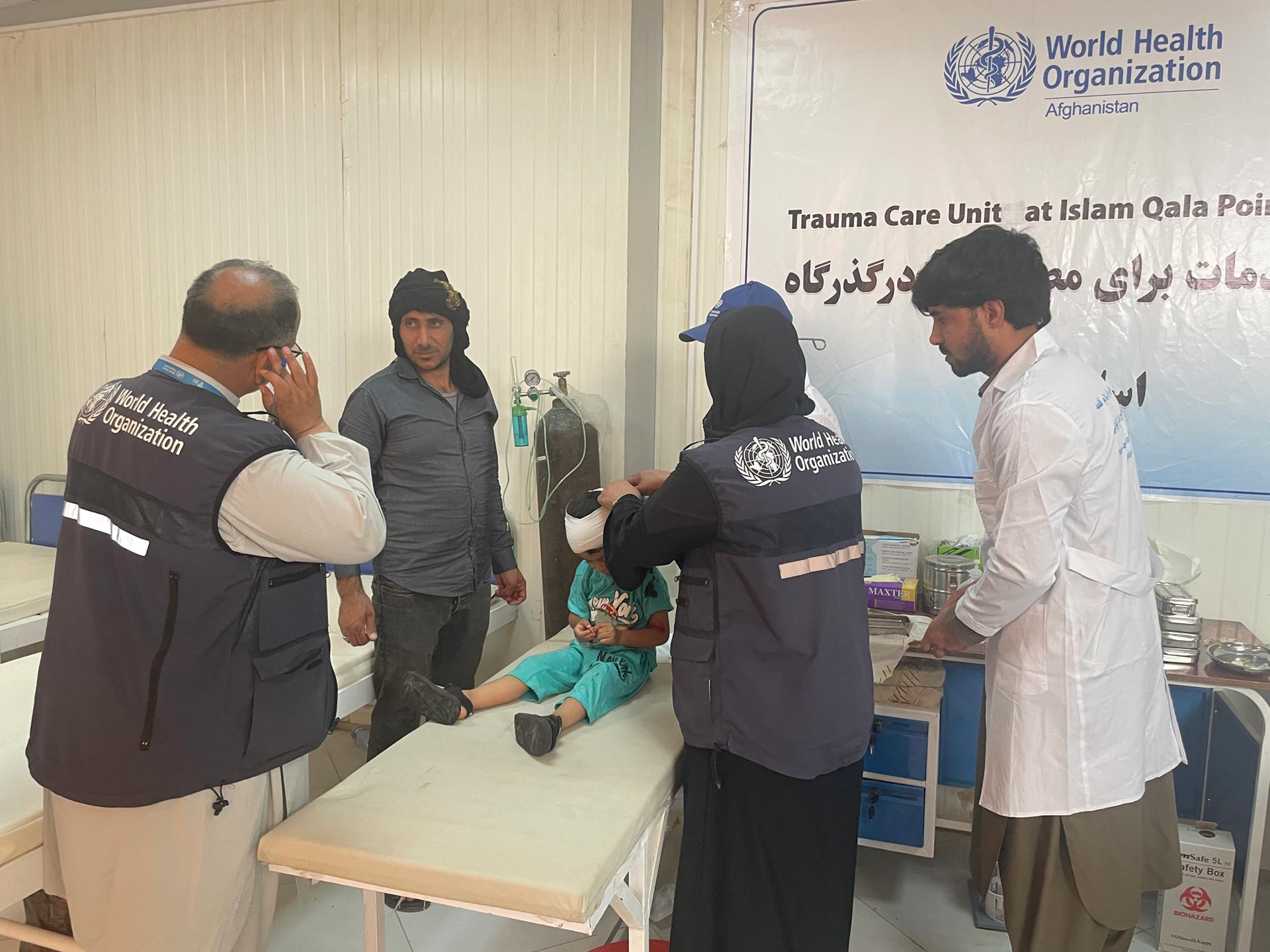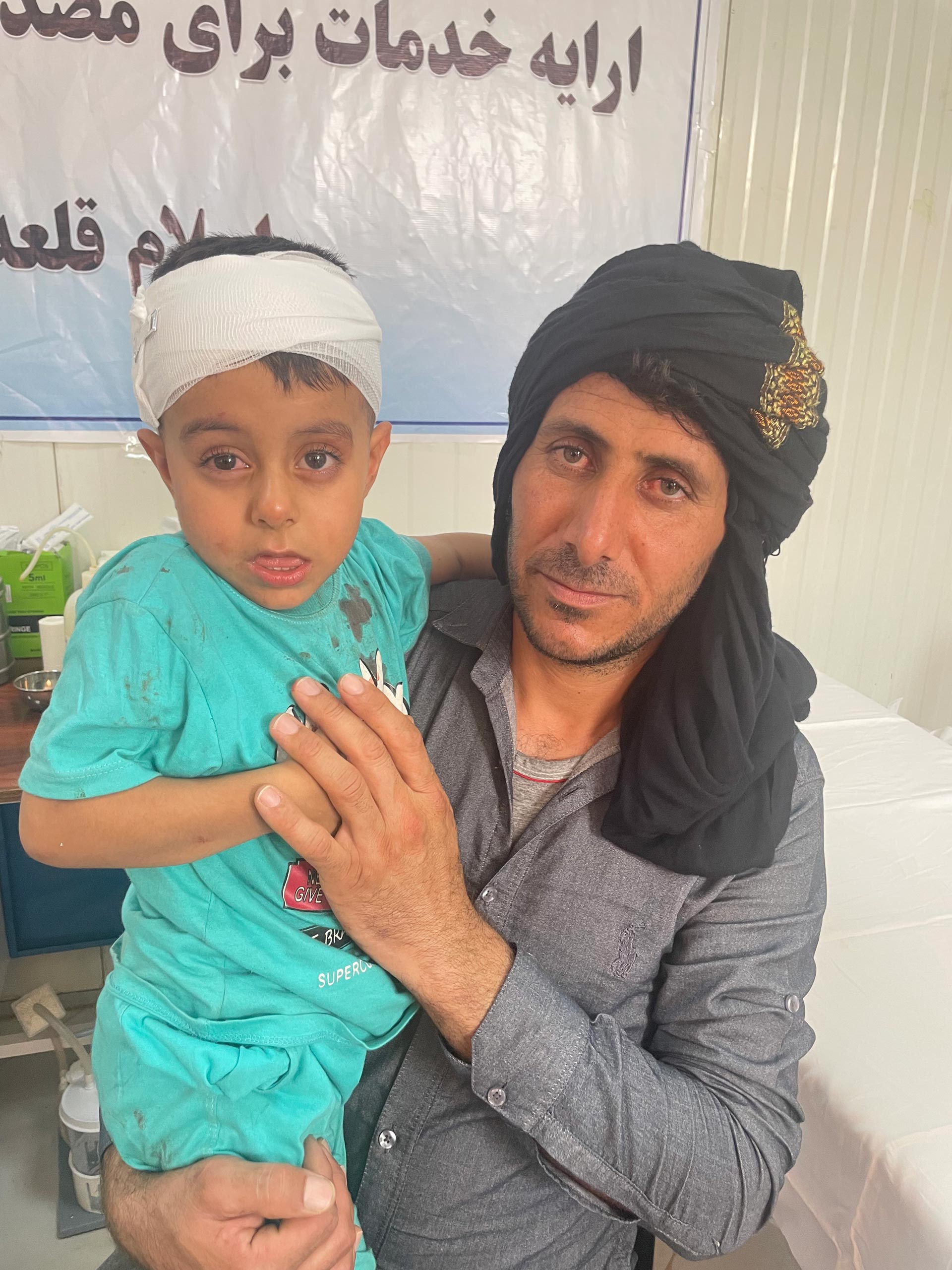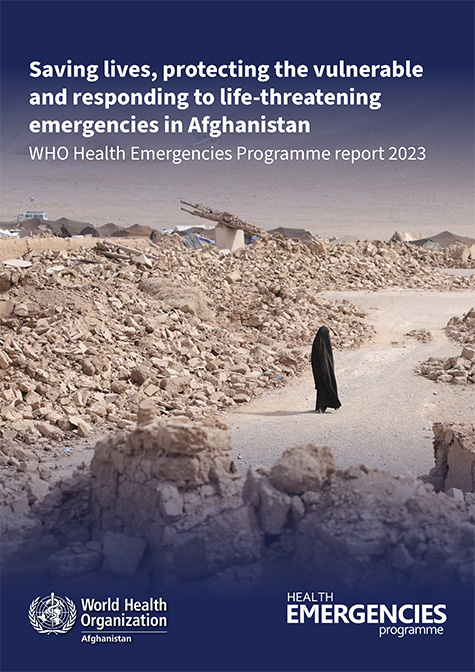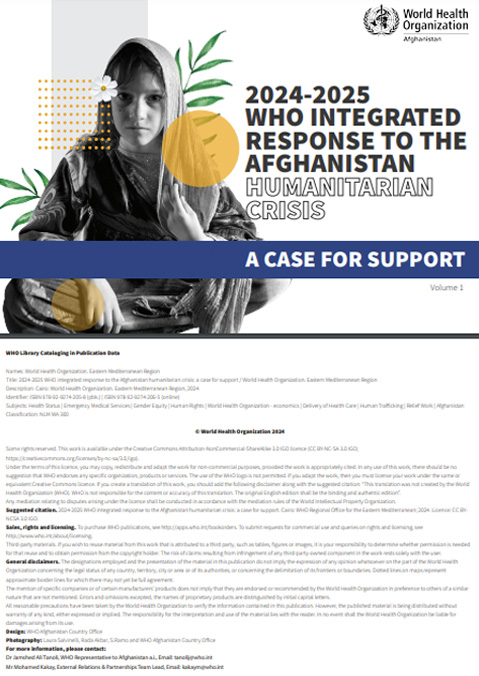 Akmal Younus receives trauma care at the WHO health facility, Zero Point Border in Islam Qala, Afghanistan. Photo credit: WHO
Akmal Younus receives trauma care at the WHO health facility, Zero Point Border in Islam Qala, Afghanistan. Photo credit: WHO
27 August 2025, Kabul, Afghanistan – Every day, thousands of returnees from Iran arrive at the Islam Qala border crossing in Herat province. Exhausted from long journeys, fleeing hardship and seeking safety, many are sick, injured or simply overwhelmed.
WHO Afghanistan has set up a trauma care unit at the Islam Qala reception centre. From outside it may look like a tent; inside it is a fully equipped emergency care facility with 7 beds, lifesaving supplies and a team of dedicated health professionals ready to act fast.
Since January 2025, over 3905 patients have received emergency treatment here. But care doesn’t stop at the trauma tent. Through WHO’s Primary Health Care Project, 31 frontline workers, including doctors, vaccinators and surveillance teams, provide additional support on-site. They’ve screened and vaccinated more than 1 299 567 people, mostly women and children, protecting them from diseases like measles and polio.
 Akmal Younus and his father after Akmal had been treated. Photo credit: WHOThe story of 4-year-old Akmal Younus is just one example how needed this care unit is. On 9 July, after a 16-hour journey, he arrived from the Islamic Republic of Iran with a head injury. His father, Ahmad Farid, was desperate.
Akmal Younus and his father after Akmal had been treated. Photo credit: WHOThe story of 4-year-old Akmal Younus is just one example how needed this care unit is. On 9 July, after a 16-hour journey, he arrived from the Islamic Republic of Iran with a head injury. His father, Ahmad Farid, was desperate.
“When my son got injured, I was terrified,” said Ahmad. “But the WHO team at the border stepped in and treated him immediately.”
Akmal received emergency care, vaccinations and follow-up support from WHO’s nutrition unit. His story is one of many at this busy border.
“At Islam Qala, WHO teams are providing the highest level of health care, treating injuries and saving lives. Every patient is a reminder of what is possible when humanity and health care meet on the frontlines,” said WHO Representative in Afghanistan Dr Edwin Ceniza Salvador.
Needs are growing as more families return. WHO plans to expand mobile health teams, train more female health workers and strengthen emergency supplies. Continued donor support is essential to keep this lifeline open.
For more information, please contact:
Mariam Amiry
RCCE Officer WHO
Kabul
Afghanistan
This e-mail address is being protected from spambots. You need JavaScript enabled to view it













